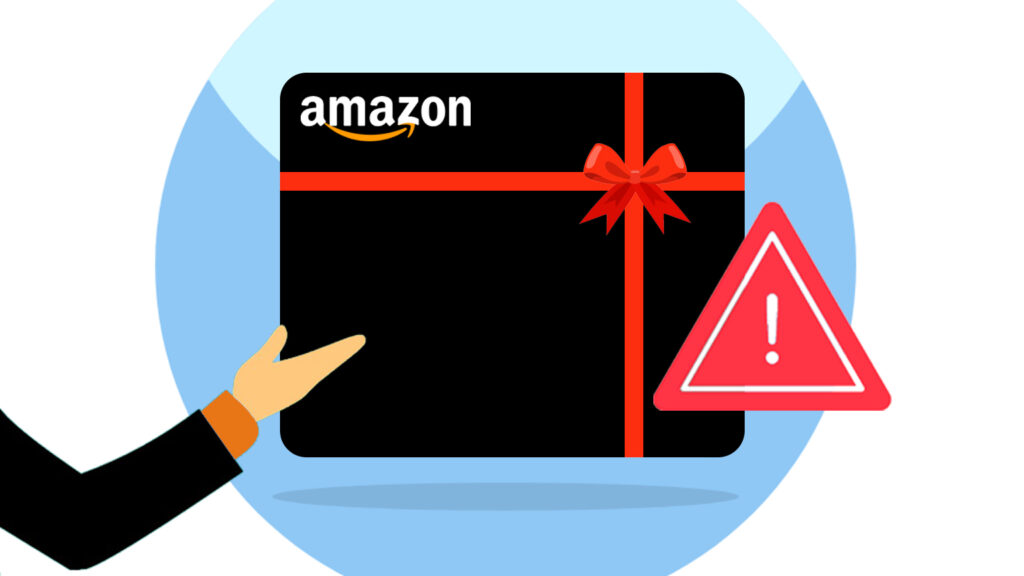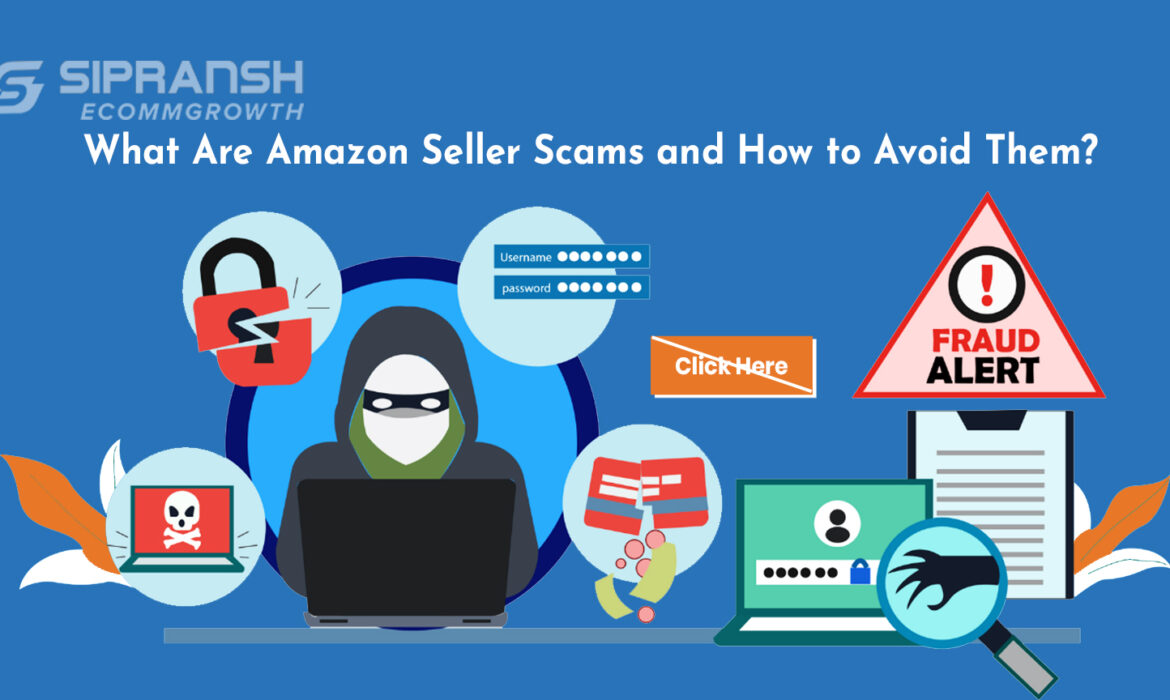
Do Amazon Scams Still Exist?
Amazon is one of the most entrusted platforms for both sellers and shoppers but frauds are increasing a lot on a daily basis in the eCommerce industry these days. Maybe you have discovered Amazon account scams for the first time, but these scams are not new they have been around for decades. Daily more ingenious scams or loopholes are revealed and leveraged. The thought, “Have I been scammed?” has struck the minds of many Amazon sellers at some point. Amazon seller scams refer to fraudulent activities on the Amazon platform, where third-party sellers try to cheat buyers, competitors, or Amazon itself.
As an honest Amazon seller, frauds like these can endanger your business. While Amazon is more positively handling these scams, there are a few balances and assessments a seller can do to undervalue the repercussions associated with “seller fraud.”
A current study from Marketplace Pulse has reported: “There are 100 new fake accounts created every day”. And during high-traffic times, like the holiday season, these numbers tend to increase more. Scammers are very sneaky as they use persuasive language while writing emails to trick sellers. Sellers must take the essential steps to protect their businesses and guard themselves against these threats. However, you can avoid getting scammed with our compiled list of common Amazon scams and ways to dodge them.
Types of Amazon Scams Every Seller Should Know
Amazon is a popular online marketplace that allows individuals and businesses to sell their products to a global audience. Unfortunately, some sellers on the platform engage in scams that can lead to financial loss and other problems for buyers. Here are some common Amazon seller scams sellers should know:
1. Unauthorized Purchase Scam, a.k.a Phishing
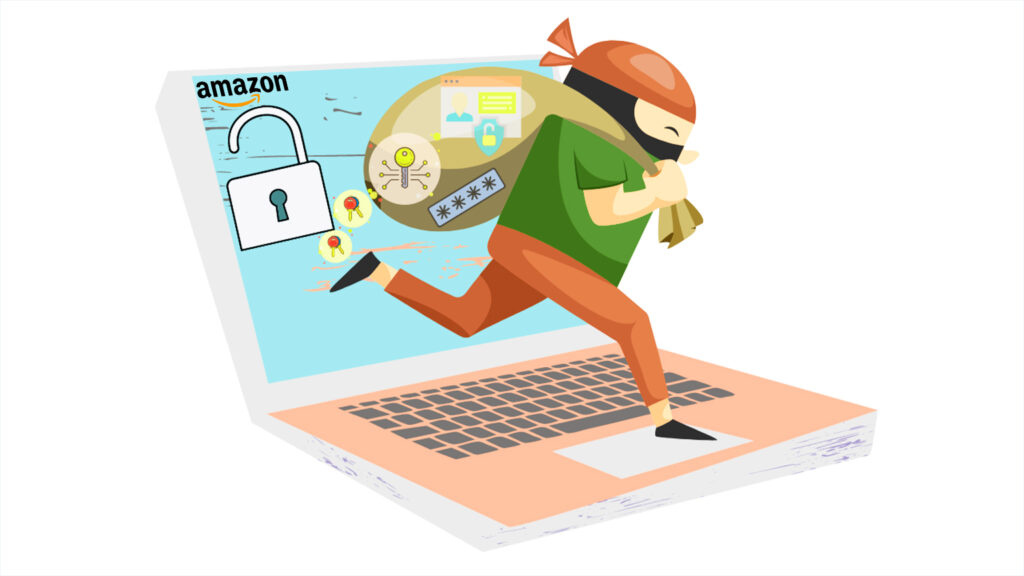
When someone pretends to be a reliable organization (like Amazon or eBay) and attempts to obtain personal details from you to embezzle your funds/identity, it is known as Phishing.
Phishing scams are common nowadays. These scams happen mostly via email because it is the best way to get your personal information. Here hackers send you emails containing malicious links, and when clicked, redirect you to a whole new space that acquires your private information and the ability to regain the passwords that you have set up. There are several ways to protect yourself from phishing attacks, such as email authentication protocols. Never dispatch a product to a buyer unless it displays in “Your Orders.” If an order doesn’t emerge in “your orders” and you acquire an email about it, it is an obvious sign of a scam. Delete that email instantly. Never respond to it because most scammers invent an order to further ask for your confidential details about shipping and payment to lure you into giving more data.
If you are receiving emails with attachments and you are unsure of them then delete them, or don’t open any of those attachments. Always remember that Amazon will not ask for sensitive details. So, don’t get deceived.
2. Fake Tech Support
Fake tech support agents call users directly or request them to communicate with them by mailing a phony email proclaiming an issue with the client’s account. They convince people to install harmful programs or software to resolve the issue.
3. Malicious Links
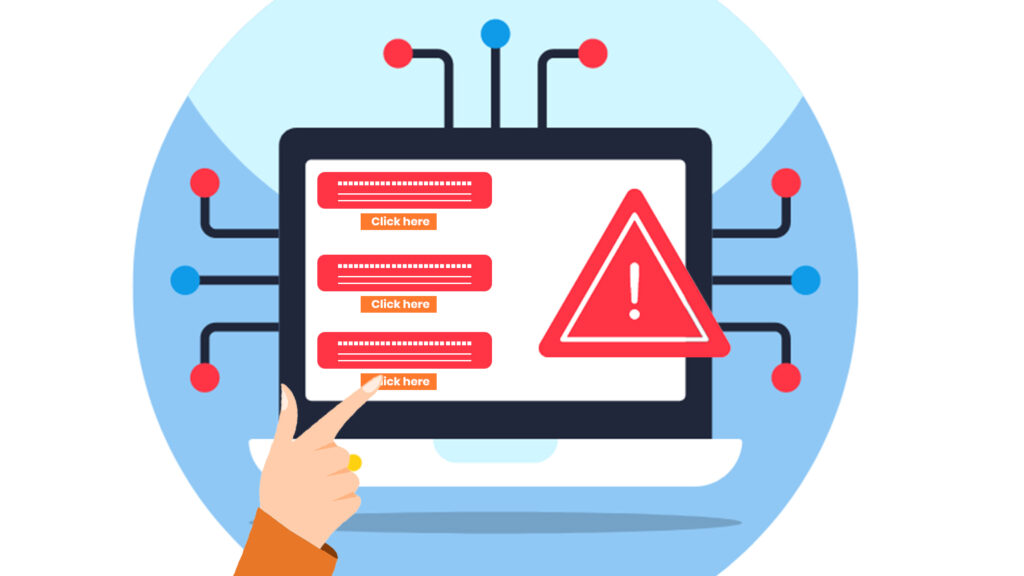
This scam is also generally perpetrated via SMS or email. It may seem like genuine communication from Amazon, asking you to click a link and enter your account to fix an issue. You reveal your Amazon login information, but hackers drive the website you’re on, and you get scammed before you discover.
4. Gift Card Scam
When scammers get buyers to purchase Amazon gift cards and expose their card information, it is a gift card scam. Con artists can quickly redeem the gift coupons. Online fraudsters may also create unreal fundraising measures that take donations in gift card form. They can scheme different scenarios to convince you to buy gift cards.
5. Payment Scams

Payment frauds are the most ordinary scam where scammers try to sway you to pay for your purchases outside Amazon’s secure network. They will frequently offer discounts or tempting offers if you pay them via PayPal or Western Union. Don’t believe their affirmations, or you will lose money with your order. Such sellers delete their accounts briefly after. They will slightly use Amazon in such strategies as the payment made outside their platform.
6. Prize Scam

This scam appears as a message informing users that they have won a prize, but to obtain it, they must click on a malicious link. The scammers operate the link and this will either infect your system with malware or steal your login details.
7. Fake Claims Scam
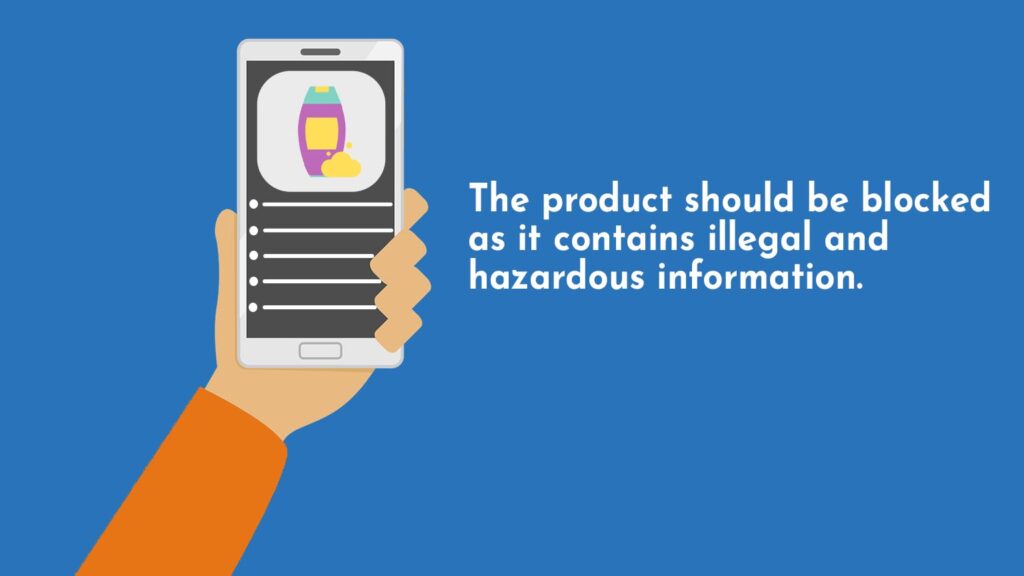
Surprisingly, it is not difficult to get an Amazon listing suspended. As Amazon works on a guilty until proven innocent attitude. Just a rare false complaint about an Amazon product listing can get it blocked. If a seller sells chemical or electronic items, the buyer or your immoral competitor can buy the product and claim the product to be dangerous. For additional inquiries, Amazon will instantly suspend the account. The reinstatement procedure can take up to weeks or months. This scam can easily harm your organic ranking and drop your sales.
8. Listing Copy Infringement Scam
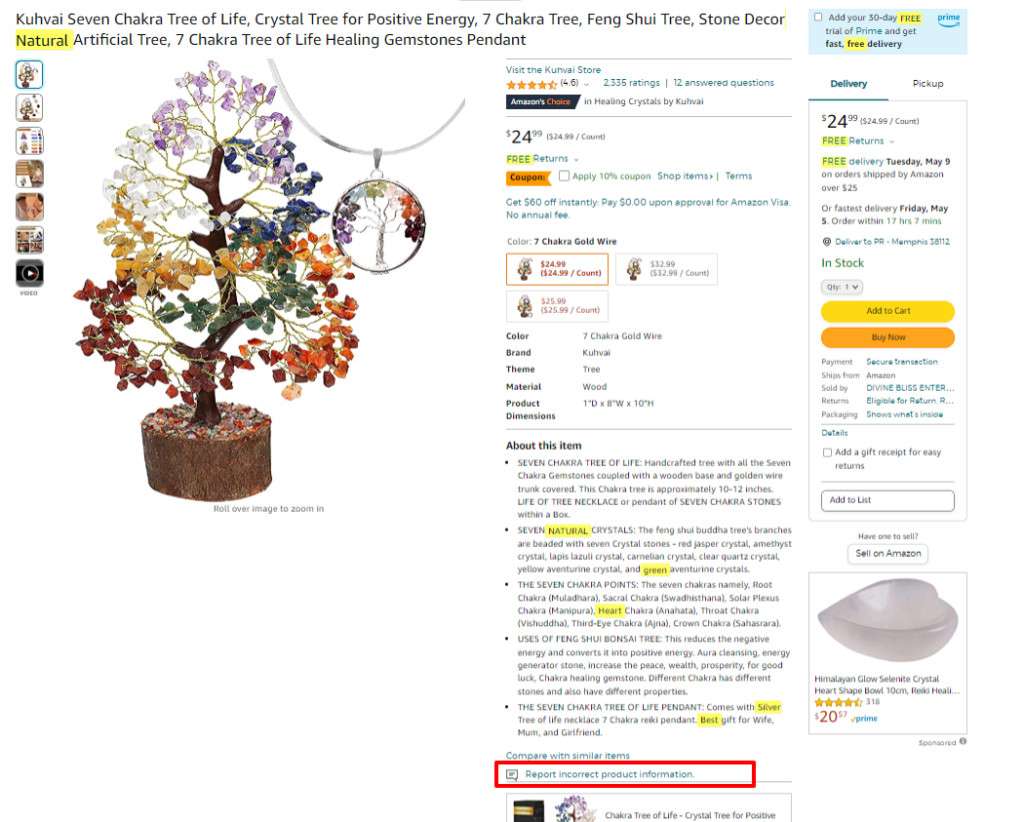
Many sellers experience that their listing got changed by Amazon without their knowledge. Sellers purposely attempt to exploit Amazon to make changes by providing false product claims. If you are wondering how it works, let me explain this to you. A malicious seller with numerous selling accounts will intentionally file complaints about wrong product information. For example, if you sell a pack of 20, he will claim you are giving only 10. If Amazon obtained adequate complaints about the same, it would modify your listing copy. When you discover what happened, you will be already losing. Your product could have a lot of downbeat reviews and return requests.
9. Listing Hijacking Scam
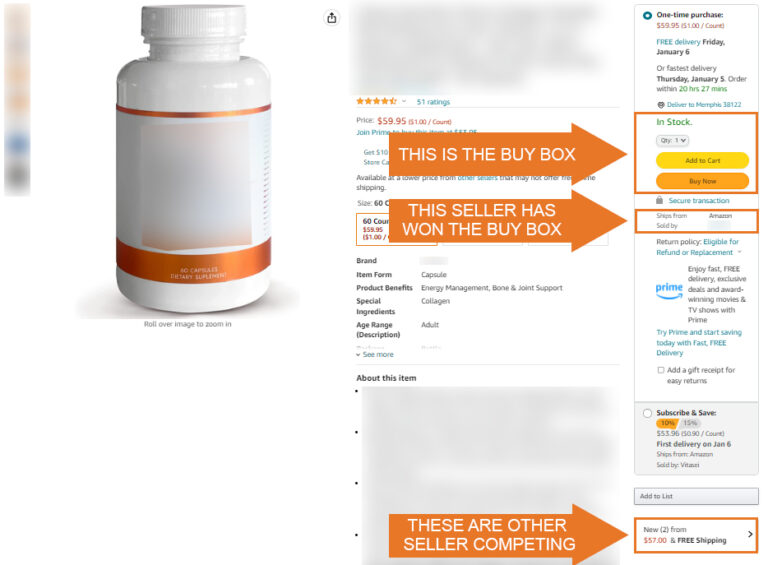
Amazon’s struggles with counterfeits and its examples have been increasing rapidly. These sellers list their products on your Amazon product detail page at lower prices and win the buy box. So they are qualified for every sale the product gets. Occasionally they provide fake or damaged products to the customers, which can decline the conversion rate with time.
10. The Inventory Tie-Up Scam
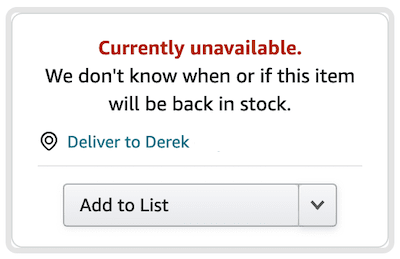
An evil seller can use a credit card to buy all your inventory just before the holiday season, so you have no products to sell during the most engaged time of the year. Worse, these sellers can list their products on your listing to drive more sales. Once the vacation season finishes, the malicious sellers return the products and get a reimbursement. You can battle such scams by fixing quantity limits on the number of units sold per transaction.
11. Sponsored Ads Scams
Does Amazon PPC budget is depleted at the start of the day itself? Beware, you are a target of an Amazon Sponsored Ad Click scam. Your competitors will click on your Amazon Sponsored Product Ads and make the Ad budget fully exhausted. It will raise your spending and ACOS very much and decreases your conversion rates to a greater extent. They do this usually on weekends when sales tend to heightened, and there is no one to keep a watch on.
12. Review Scams
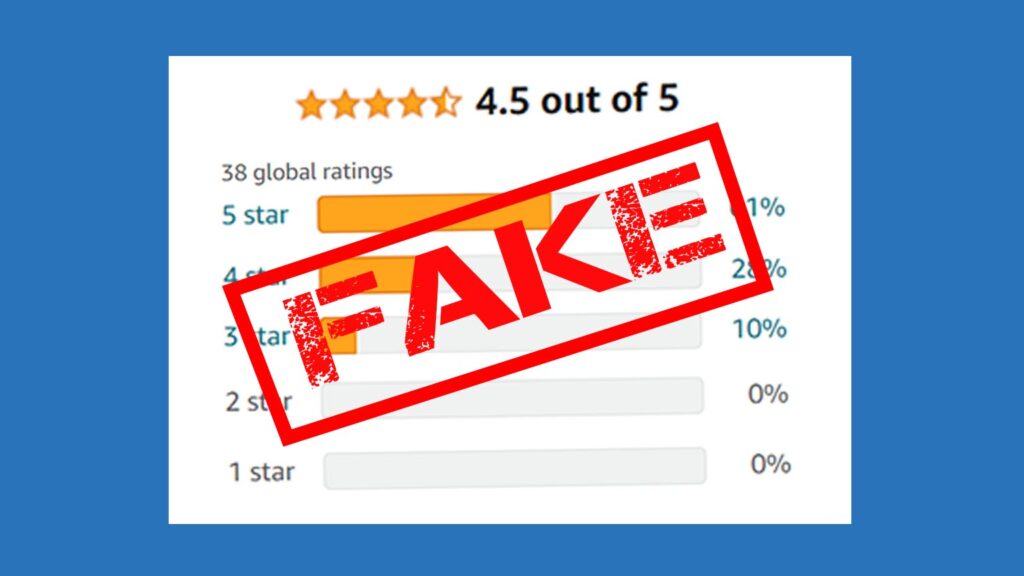
As the competition is intense in Amazon, therefore sometimes it gets spoiled. Some sellers try to harm other sellers’ credibility by writing fake “verified” reviews. It can ruin a seller’s reputation with sales dropping drastically. Some sellers also upvote the current negative reviews by clicking “yes” or “Was it helpful.” They do it until that negative review reflects on the detail page. In some cases, such ploys have reduced conversion rates by 50%.
13. Amazon Dropshipping Scams
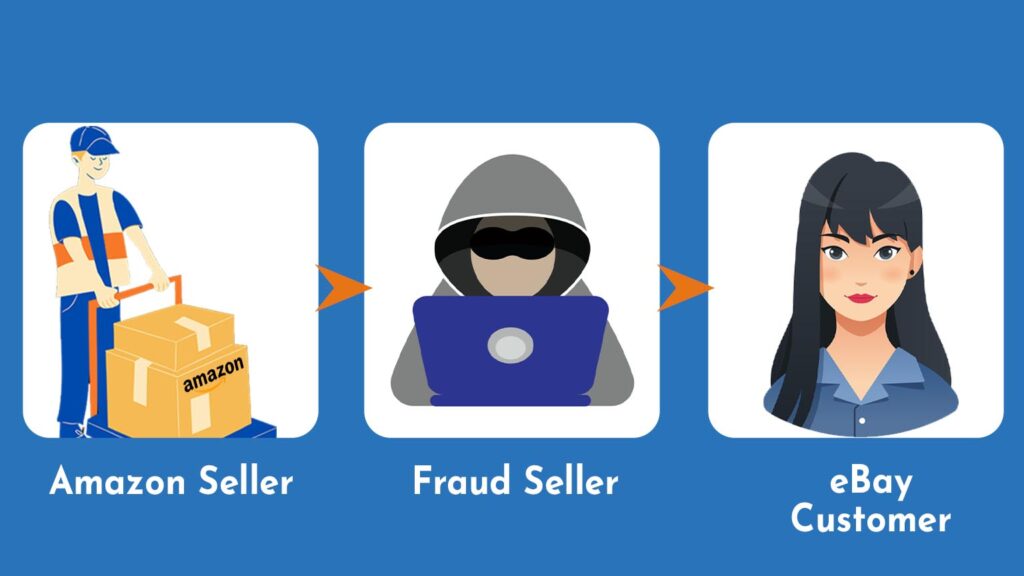
Have you ever received an eBay order in the Amazon box? Nowadays, many sellers make quick money by selling Amazon products on eBay at excessive prices. Whenever an order is accepted, the drop-shipper will buy the exact product from Amazon, deliver it to the buyer and keep the difference.
Why is this bad for Amazon sellers? Lately, then fake drop shippers have been purchasing and filing bogus A-Z claims after the product delivers to eBay customers. Drop-shipper gets the reimbursement and also the price from the eBay buyer. And the Amazon seller has to forfeit FBA fees as well as the cost of the product. They don’t just damage you financially, but such returns also harm sellers’ prestige, which can also lead to account suspension.
14. Failed Delivery Scam

This scam type is old and occurs often. Why is this scam wrong? A customer buys a product online and states that the item did not arrive. The buyer claims a replacement or refund even if they got the product. It happens in some cases, but it is crucial to take appropriate precautions to prevent yourself from getting scammed. This type f scam can further affect your seller performance metrics and feedback.
While sending a pricey product to a consumer, send it through track-and-trace postage, as this saves you during conflicts and benefits verify when the item was delivered. It means that the product will be delivered to the customer after the recipient’s signature upon getting the product.
15. Replace & Refund Scam
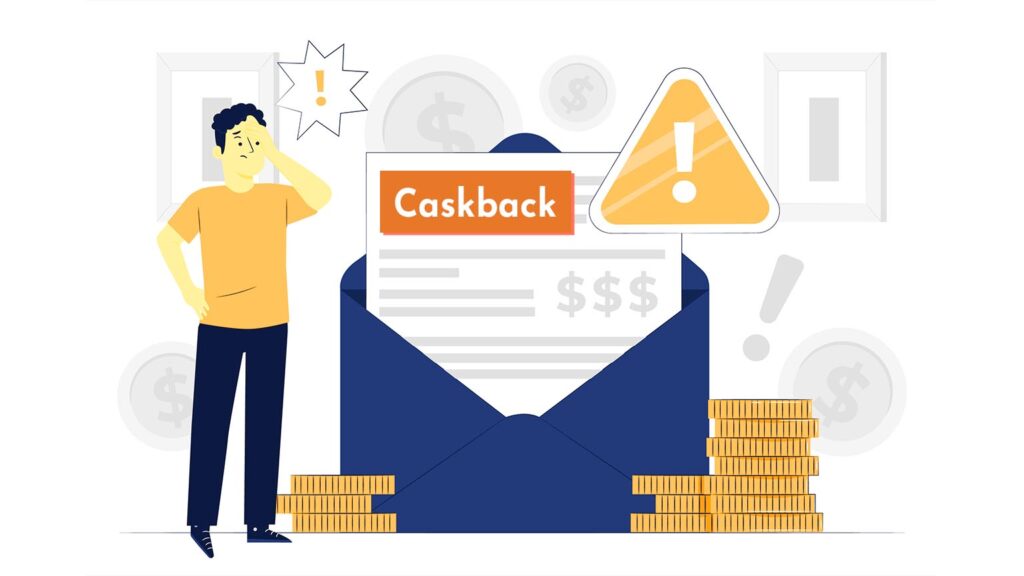
This scam is similar to what it expresses – A seller mails an item to the shopper, who then swaps it with an exact piece but “old/damaged” and asks the seller for reimbursement.
It often happens in gaming corporations. If you sell video gaming consoles or something exact on Amazon, be aware of this. A conman usually orders a game. When it is shipped and delivered, the scammer swaps it with a broken or scratched one and returns it because it does not work. The seller cannot prove this. In this scenario, even images are unconvincing proof because they may not be legit.
This scam is resolvable by performing a proper grade test and sticking a tamper-proof sticker. These sticker designs are exclusive. Therefore, it rips when somebody tries to separate it from the actual product. Also, mention in the Amazon product description that you have tested the product and have included a warranty sticker to prevent potential scams.
How To Safeguard Your Seller Business From Amazon Scams?
Amazon is a very reliable e-commerce platform. Also, its buyer-friendly refund policy makes shopping risk-free for shoppers. Having so many sellers in this network and large new sellers joining the platform daily also brings difficulties. It has become almost impossible for Amazon to inspect every third-party seller. While Amazon does take measures to regulate the marketplace and ban illegitimate sellers, learning how to avoid scam sellers on Amazon is crucial. It is inescapable that some unauthorized sellers still slip through the cracks, selling the wrong products to naive consumers. Many Amazon shoppers have had an experience like this. The pricing and pictures look legit, so you buy the product. When the product shows up at your door, the packaging might be damaged, the product is expired, or it seems to be a slightly different color or consistency than you remember. It means that you buy the product sold by an unauthorized reseller. So how can you stop this from happening? We’re showing you what to look for before purchasing from a seller on Amazon.
- Never transfer money outside of the Amazon payment systems.
- Avoid clicking on untrustworthy links. Log into your Amazon account when you visit their page or use the official app while checking something.
- Never give any credentials or personal information to anybody acting as an Amazon representative or anyone for that matter.
- Call Amazon to verify if you notice anything doubtful or are uncertain about someone acting as their representative over the phone.
1. Purchase Directly From the Brand or Manufacturer
Buy Straight From the Brand or Manufacturer. Always check the listed product seller. It is as easy as looking at the “sold by” section in the buy box. Purchase directly from the brand or manufacturer rather than a random Reseller. Let me tell you- if you are buying a product from a reseller, you could potentially be buying counterfeit, expired, or damaged products. We are not saying that you should never purchase from re-sellers. However, do more investigation into their seller history and reviews.
2. Instantly Report To Amazon
Ask your Amazon seller consultant to send an email to Amazon the moment you become the target of any of these scams. Or go to Amazon’s Sellercentral help section, where you can type your problem and request them to call you back. Explain what has happened to them and ask them the next steps. If you have sufficient proof and a good reputation, Amazon will help you.
3. Keep Your Seller Account Credentials Secure
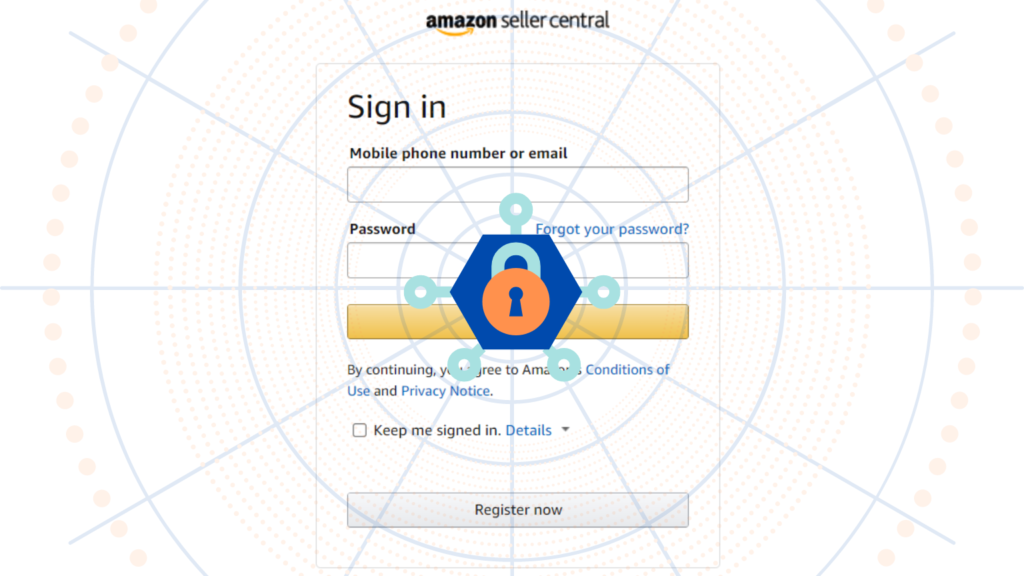
4. Initiate 2-Step Confirmation
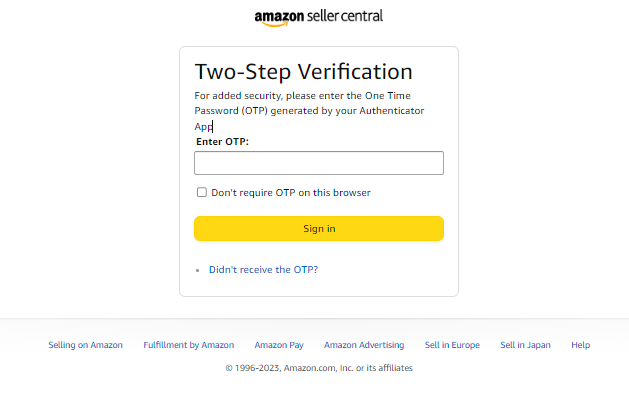
It is the simplest and most suitable way to protect your account. A seller can sign into his account only through a two-step verification code, where the code is any random six-digit number. You can get the code from Google Authenticator to your smartphones, Amazon’s registered phone number, and Amazon’s registered mail ID. If you have not turned it on yet, do it today.
5. Look Closely at The Sender’s Email ID Or URL
Phishing scams and Email frauds go conjointly. You must understand the difference between an actual and a fake email ID. Authentic emails you get from Amazon will always end with @amazon.com. Do not think any email IDs with Amazon or seller central in that are genuine.
Some of the fake email IDs used are as follows:
sellers-performance@payment-amazon.com
amazon-seller-payments@msn.com
Similarly, the sites ending with.amazon.com are original. Often site with the URL: https://sellercentral-secure-amazon.com is used to get sellers to log in. Remember that Amazon won’t blend words like “amazon.com.biz” or “sellers-amazon.com.” Also, watch out for grammatical or spelling errors in emails. If you see that, then it is a sign of ALERT!
6. Keep A Good Reputation
When you are a target of cons like return and refund or failed delivery, then a good reputation supports you. If Amazon acknowledges that you care about your consumers while your account is healthy and the timely customer reply ratio is good, then Amazon will favor you over scammers. Your Amazon SEO consultant will take care of this for you.
7. Be An FBA Seller
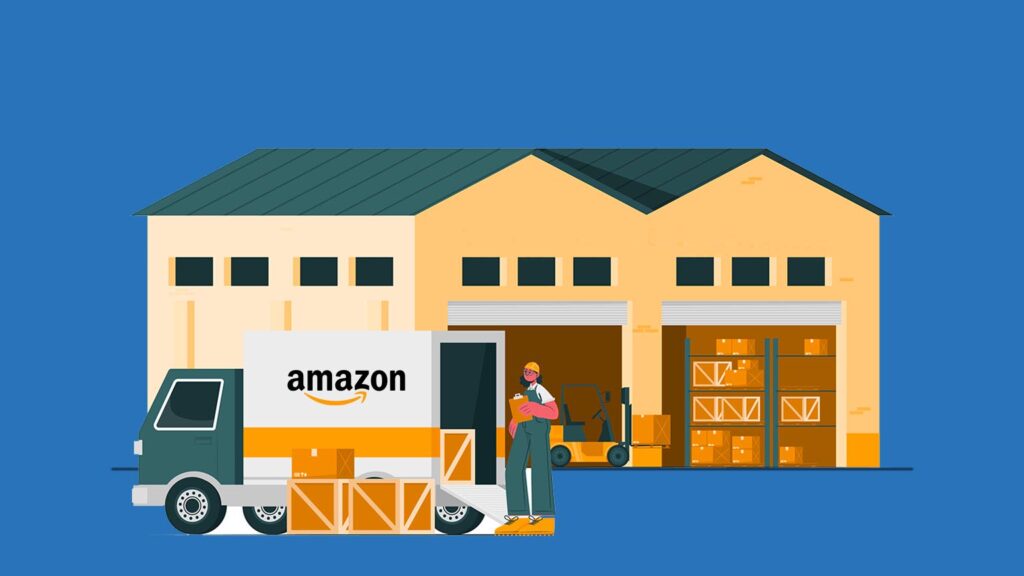
Being an Amazon FBA seller guards you against buyers who make false delivery claims, return scams, or other types of scams involving shipping since the item they obtain ships from Amazon’s warehouse and not by you. Being an FBA seller won’t completely protect you from all types of scams and fraud, but it can be extra insurance for you as a seller.
8. Register Your Brand
The brand registry will protect your listings from counterfeiting and help build customer trust in your brand. Because of the brand registry, customers can identify the difference between quality and cheap products. Plus, a brand-registered seller can fight back against hijackers more efficiently.
9. Answer Customer Inquiries
Be quick while answering different customer inquiries, as it prevents fraud suspicions. When you answer customer inquiries in just 24 hours, it means you have established good communication, for which customers will reward you with positive feedback. These feedback & ratings will help Amazon consider whether or not you are a verified seller. Besides this, there are other ways to confirm that your selling business is in harmony with Amazon’s values, including shipping and steadfast delivery. With the help of tracking information, you can know where exactly your product is and give these details to your buyer. Though these things sound uncomplicated, they help keep your business driving efficiently and keep you as a preferred seller, at least in Amazon’s eyes.
10. Use A Strong & Unique Password
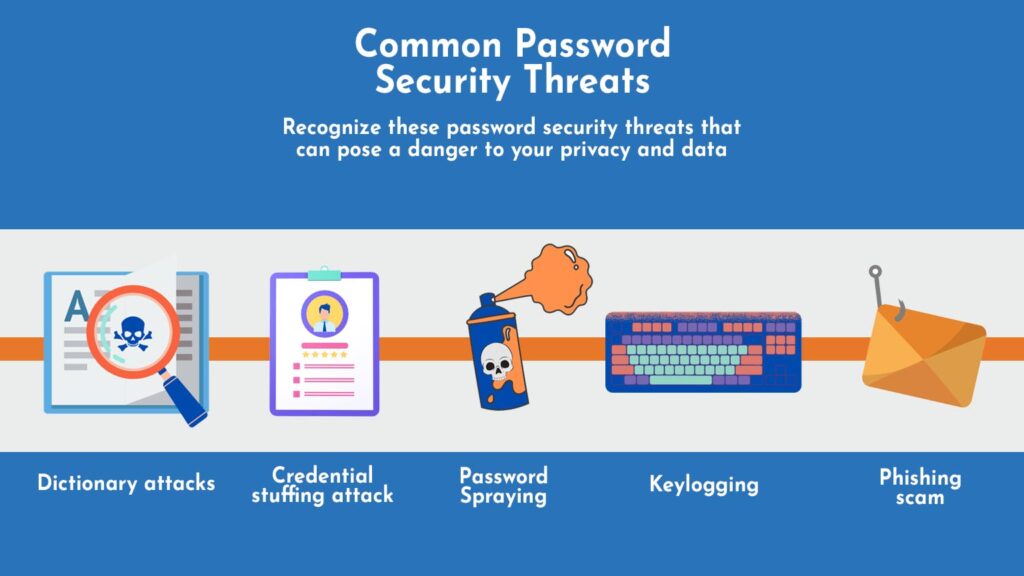
Hacking Amazon accounts is quite ordinary and is one of the biggest concerns Amazon should look out for, considering the sellers’ rightfulness. As a seller, it is essential to take a few safeguards to prevent your account from being hacked:
- Make your Amazon account’s password long and complex enough.
- Do not reuse passwords you are using on other websites or applications.
- Use a password manager to generate complex and strong passwords.
- Change your password regularly from time to time.
11. Update Everything Regularly
Cybercriminals may use malicious bots or malware to strike security susceptibilities on your system. It’s crucial to keep your device’s operating system up-to-date, along with other Amazon-related apps. Make sure you use a reliable antivirus and firewall from credible vendors.
Final Conclusion
While Amazon scams and frauds are very typical, they are avoidable, and you can guard yourself both as a buyer and seller by following the tips and techniques we’ve shared above.
Nowadays, almost every seller has an Amazon seller account. Whether it is a basic buyer account with personal and financial data or your business/seller account, which controls your business, every seller wants to do the most to protect access.
These cons are becoming more advanced than before. So before you get caught in any of these scams, contact SIPRANSHECOMMGROWTH today. Our team will protect your account from all kinds of frauds or scams. You can focus on developing your business and let us handle these tasks for you.



